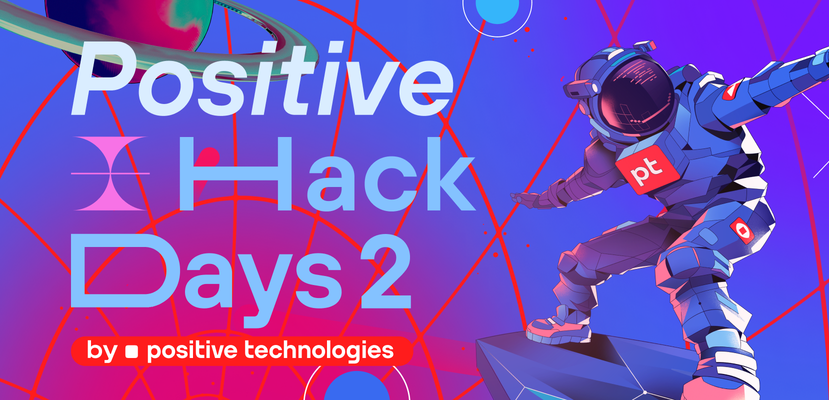Tech News
Second day of CABSAT 2024 continues to reveal transformative trends and innovations within media and entertainment landscape

CABSAT 2024, the Middle East’s flagship event for content, broadcast, satellite, media, and entertainment sectors, returns for a second day to promote innovative solutions, technologies, and ideas that are fundamentally reshaping the media and entertainment industry. The show enjoyed a special visit from ZHU Yonglei, Vice Minister of the National Radio and Television Administration of P.R.China(NRTA).
CABSAT, a 3-day event celebrating its 30th year, brings together over 18,000 industry professionals. From engineers to content creators, attendees gain valuable knowledge about the future of media and entertainment through talks and discussions. This year’s conference features renowned speakers who will delve into the latest technologies shaping the industry. It’s a prime opportunity to learn about innovations that are transforming the media landscape.
The SATExpo Summit at CABSAT 2024 convened a distinguished audience of satellite and space technology leaders. Discussions focused on emerging trends, future trajectories, and the impact of AI on the industry.
Key speakers included – Jassem Nasser, Chief Business Development Officer of Yahsat, Jan Stoop, VP Business Development, Comtech, USA; Joakim Espeland, CEO, QuadSat, Denmark; David Provencher, Vice President Business Development, AvL Technologies, USA; Elizebeth Varghese, Principal and Co-leader, Deloitte Consulting, USA. An engaging Fireside Chat, on ‘Phased Array Antennas for Next-Generation Mobility’ featured Dr. Leslie Klein, President and CEO, C-COM Satellite Systems Inc., Canada, and Virgil Labrador, Editor-in-Chief, Satellite Markets and Research, USA, as speakers.
Joakim Espeland, CEO, QuadSat, Denmark, said: “We were delighted we took part in the discussion on ‘Advances in Antenna Registration Processes from Gateway to User Terminal’. The discussion unveiled vital insights on innovations in antenna testing and calibration, the use of advanced testing in calibration, and the future of antenna registration and calibration.”
Various spotlight sessions were hosted, which included distinguished speakers, such as Salman Babazade, VP Sales SADC, East and Central Africa, Azercosmos, Azerbaijan, and Ramsey Khanfour, CCO, ABS (Agility Beyond Space), UAE.
The second day of CABSAT’s Content Congress saw media, broadcasting and tech experts brainstorm on creating, sharing and profiting from content in the evolving media world. They discussed new trends, cross-border collaboration and ways to tap into the booming content creation market.
The annual CABSAT conference is buzzing with innovation. Grass Valley, a leader in live production, just announced a partnership with Arabsat, a major satellite operator. This collaboration will see Arabsat utilize Grass Valley’s AMPP SaaS platform to create a new, flexible broadcast service. This cloud-based solution promises to streamline broadcasting for Arabsat’s customers. Meanwhile, CABSAT itself is taking steps to shape the future of media and entertainment in the MENA region. They’re launching a prestigious Brand Ambassador program, seeking out top business leaders to guide the industry and attract exciting new opportunities.
The selected ambassadors include: Sanjay Raina, Global Media and Entertainment Executive; Manoj Mathew, Director of Studios and Events at Dubai Studios, Dubai Media; Kabir Khan, Film Director; Crispin Dominic, CEO and Founder, Action Filmz Production; Randall Barney, Director of Certification and Membership, World Teleport Association, USA; Vijaya Cherian, Head of the Broadcast and Satellite Division at CPI Trade Media; Virgil Labrador, Editor-in-Chief, Satellite Markets and Research, USA, and Heba Korayem, Content Market and Distribution Specialist, H Consult.
Tech News
Canon offers new firmware and applications for 4K remote PTZ camera systems

Canon recently announced that it will offer firmware for 4K remote cameras and remote camera controllers intended to improve the functionality and performance of functions, such as auto-tracking, free of charge from mid-July 2024. Upgraded versions of various applications including ‘Auto Tracking Application RA-AT001’ (released in April 2023) will also be made available.
Canon has been enhancing its product line-up of remote camera systems by providing application software that adds necessary functions according to their usage to camera systems, including 4K remote cameras and specialised controllers. With upgrades to firmware and applications across the system to improve their respective functionality and performance, Canon aims to assist workflow improvements on video production projects and aid visual communication in situations such as web conferences and lecture broadcasts.
The tracking function will be improved so that the updated ‘Auto Tracking Application RA-AT001’ will now be able to continue to track the subject even when they intersect with another person (such as someone cutting in front or crossing paths) without transferring to the other person. Its performance will also be improved to achieve more natural and flowing movement as it tracks the beginning and end of a subject’s movements. Additionally, advanced settings for auto-tracking can now be adjusted via the controller so that cameras can be operated without the use of a PC. Canon will also begin providing the basic functions4 of ‘Auto Tracking Application RA-AT001’ free of charge in order to allow a broader range of users to enjoy the improved convenience.
The update will improve the video output framerate during USB connection. Remote cameras CR-N300 and CR-N100 comply with USB Video Class, the standard for USB transmission, and by simply connecting them to a PC via cable they can be used for web conferences. The output framerate will be improved from FHD12.5fps, which the camera was originally equipped to handle, to a maximum of FHD30fps. In addition to Motion JPEG format, the output format will now be offered in YUV format as well, thereby facilitating image processing after shooting. Being compatible with the two formats, the remote cameras – with updated firmware – can be used for various kinds of web conferences.
In addition, the functionality of the dedicated controller will be enhanced so that it will now be possible for the touch panel on the remote camera controller RC-IP1000 to display thumbnail images of presets and trace functions registered on the camera. Users can access the function while displaying the thumbnail image, thereby reducing operational mistakes, and enabling intuitive control operation. Furthermore, images shown on the touch panel, which can display up to nine cameras at one time, can be output to an external monitor via an SDI and HDMI. This controller firmware update will improve on-site operations by enabling users to control the cameras while checking the multiple views simultaneously displayed on a large screen.
News
Positive Technologies “Positive Hack Days” 2 in Moscow

Positive Technologies, along with the Russian Quantum Center and other industry leaders, hosted the second edition of Positive Hack Days (PHDays) from May 23-26 at the Luzhniki sports complex in Moscow. This event brought together experts and enthusiasts to discuss the latest in cybersecurity, with a special focus on quantum technologies.
Main Highlights and Key Insights
1. Cyber Threats to Quantum Technologies
One of the key topics at PHDays was the identification of major cyber threats to quantum technologies. Gartner predicts that by 2025, about 40% of large enterprises will be running pilot projects based on quantum technologies. Positive Technologies, in partnership with QBoard, QApp, and the Russian Quantum Center, presented a study highlighting five main threats:
- • Physical Threats: Quantum bits (qubits) are very sensitive and can be disrupted by denial-of-service attacks.
- • Information Theft: The results of quantum computing are valuable and could be targeted by cybercriminals.
- • Software Vulnerabilities: Existing vulnerabilities in quantum computing software pose serious risks.
- • Cloud Computing Threats: As cloud-based quantum solutions grow, so do the risks of cyberattacks on these services.
- • Quantum Internet Attacks: These attacks aim to steal information or disrupt quantum networks.
2. Positive Technologies’ Approach
Elmar Nabigaev, Director of PT ESC, discussed the measures taken by Positive Technologies to stay ahead in cybersecurity. These include quick incident response times, scalable solutions, and deep integration with threat intelligence teams. Nabigaev also emphasized the importance of community collaboration, showcasing their involvement in major events like the Sochi Olympics and the FIFA World Cup, where they provided cybersecurity services.
3. Focus on Managed Security Service Providers (MSSP) and SaaS
Alexey Malnev, Director of Service and Technology Partnership Development at Positive Technologies, spoke about the company’s focus on MSSP and SaaS business models. He explained that outsourcing cybersecurity to managed security service providers is the future, as it allows for effective large-scale protection. Positive Technologies offers a range of MSSP-ready products and services to meet the growing demand.
4. Incident Response and Threat Intelligence
Positive Technologies demonstrated their capability in incident response and threat intelligence. Their Security Operations Center (SOC) acts as a global observer during cyber battles, showing their role as both a vendor and a service provider.
5. Preparing for the Quantum Era
Experts at PHDays stressed the importance of preparing for the quantum era. Quantum-resistant solutions and post-quantum cryptography are essential to protecting information against future quantum-based attacks. Yaroslav Borisov from Kvant Joint Venture highlighted that the next decade will see the integration of quantum technology with other high-tech fields, creating new products and services that will require strong cybersecurity measures.
Statements from Key Speakers
Denis Baranov, CEO, Positive Technologies:
“Quantum computing represents both an incredible opportunity and a significant challenge for cybersecurity. Our goal is to stay ahead of potential threats and ensure that the technology is used safely and securely.”
Prashanth Anchaiah, Technical Lead, Gulf IT:
“Attending PHDays has provided valuable insights into the future of cybersecurity. The discussions on quantum threats have been particularly enlightening.”
Venaktesh Nallabothulla, Business Manager, Gulf IT:
“The advancements and potential risks in quantum technology discussed here are crucial for our strategic planning. Positive Hack Days has been an excellent platform for understanding these dynamics.”
Vartak Tushar, Executive Vice President & Head of Information, Cyber Security, and Fraud Prevention at RAK BANK (UAE):
A key question in cybersecurity risk assessments is, ‘What are our most valuable assets, and how are they safeguarded?’ This helps in prioritizing resources and managing limited budgets. For instance, a bank would scrutinize the security measures protecting critical customer data to identify any vulnerabilities, ensuring the most sensitive information has the most robust and cost-effective defenses.
Maksut Shadayev, Minister of Digital Development, Communications and Mass Media of the Russian Federation:
“Quantum technology will revolutionize many sectors, but we must be vigilant about the cybersecurity risks it brings. Events like PHDays are essential for preparing us for these new challenges.”
Yury Maksimov, Co-founder, Cyberus:
“The collaboration and knowledge sharing at PHDays are key to advancing our understanding and preparedness for quantum-related cyber threats.”
Maxim Philippov, Deputy CEO, Positive Technologies:
“Our research and development in quantum cybersecurity are crucial for protecting the infrastructure of the future. Positive Hack Days provides a platform to share our findings and collaborate with other experts in the field.”
Roman Dvoryankin, CEO, Standoff:
“The knowledge exchanged at PHDays is vital for staying ahead in the rapidly evolving field of cybersecurity. The focus on quantum threats is particularly timely.”
Positive Hack Days 2 showcased the current state of cybersecurity and provided insights into future challenges and solutions. As quantum technologies continue to develop, the cybersecurity industry must evolve to protect against new threats. Positive Technologies, with its innovative approach and commitment to community collaboration, is well-positioned to lead this effort.
Tech News
Acronis Expands its Security Offering Beyond Endpoint Protection with New Extended Detection and Response (XDR) Solution

Acronis is pleased to introduce Acronis XDR the newest addition to the company’s security solution portfolio. Easy to deploy, manage, and maintain, Acronis XDR expands on the current endpoint detection and response (EDR) offering and delivers complete natively integrated, highly efficient cybersecurity with data protection, endpoint management, and automated recovery specifically built for managed service providers (MSPs).
Cyberattacks have become increasingly sophisticated due to cybercriminals deploying AI and attack surfaces expanding, allowing businesses to be more vulnerable to data breaches and malware. To protect their customers, MSPs who offer security services commonly only have a choice of complex tools with insufficient, incomplete protection that are expensive and time-consuming to deploy and maintain. As a direct response to these challenges, Acronis XDR is the solution providing complete protection without high costs and added complexity.
“Acronis makes a compelling entrance into XDR,” notes Chris Kissel, Research Vice-President at IDC. “Acronis has provided an endpoint protection platform for the better part of a year. They have extended their XDR stack mapping alerts to MITRE ATTACK and offer cloud correlation detections. Importantly, their platform supports multitenancy, and the dashboard provides intuitive visualizations.”
Key features and benefits of Acronis XDR include:
• Native integration across cybersecurity, data protection, and endpoint management. The product is designed to protect vulnerable attack surfaces enabling unmatched business continuity.
• High efficiency, with the ability to easily launch, manage, scale, and deliver security services. It also includes AI-based incident analysis and single-click response for swift investigation and response.
• Built for MSPs, including a single agent and console for all services, and a customizable platform to integrate additional tools into a unified technology stack.
“It is imperative that MSPs provide reliable cybersecurity to customers with diverse IT environments and constrained budgets,” said Gaidar Magdanurov, President at Acronis. “Acronis XDR enables MSPs to offer top-notch security without the complexity and significant overhead of traditional non-integrated tools. This is achieved in several ways, including AI-assisted capabilities within the Acronis solution that helps MSPs provide the utmost cybersecurity – even if an MSP only has limited cybersecurity expertise.”
Earlier this year, the company released Acronis MDR powered by Novacoast, a simple, effective, and advanced endpoint security service built for MSPs with native integration of data protection to deliver unmatched business resilience. Acronis MDR is a service offering used with the Acronis EDR solution focused on endpoint protection platform (EPP) to provide passive endpoint protection. The addition of Acronis MDR amplifies MSP’s security capabilities without the need for large security resources or added investments.
The introduction of Acronis MDR and XDR follows a string of security-related offerings and solutions from Acronis, building on the company’s EDR offering released in May 2023. Acronis security solutions leverage AI-based innovations and native integrations, which lower complexity and provide complete security in the easiest and most efficient way. With a comprehensive security portfolio from Acronis, MSPs can now offer complete cybersecurity to their customers and scale operations to grow their business.
-

 Tech Interviews3 months ago
Tech Interviews3 months agoNavigating the Cybersecurity Landscape in Hybrid Work Environments
-

 Features3 weeks ago
Features3 weeks agoSecurity in the Cloud Age: Combating Risks with Hybrid Cloud Solutions
-

 Tech Features5 months ago
Tech Features5 months agoHow Telecommunications Providers Can Best Tackle DDoS Attacks
-

 Tech News5 months ago
Tech News5 months agoGoogle Appoints Ziad Jammal as Google Cloud Country Manager in the United Arab Emirates
-

 Automotive4 months ago
Automotive4 months agoAl-Futtaim Automotive Builds On 23-Year Legacy of Trust & Leadership in UAE’s Pre-Owned Car Market to Sell Over 25,000 Used Vehicles in 2023
-

 Tech News6 months ago
Tech News6 months agoSenet enters MENA’s Competitive Gaming Scene with ‘skill-to-earn’ Platform
-

 Tech News3 months ago
Tech News3 months agoBrighton College Abu Dhabi and Brighton College Al Ain Donate 954 IT Devices in Support of ‘Donate Your Own Device’ Campaign
-

 Tech News4 weeks ago
Tech News4 weeks agoProofpoint’s 2024 Voice of the CISO Report: More Than Two-Thirds of CISOs in the UAE Feel Prepared for Targeted Cyber Attacks












